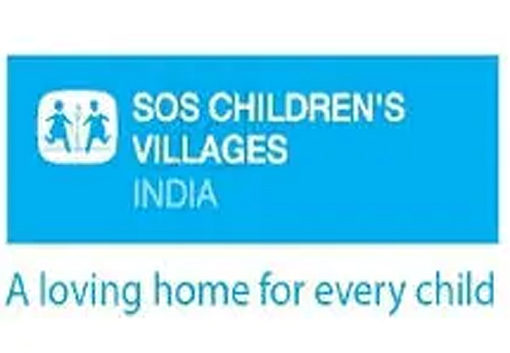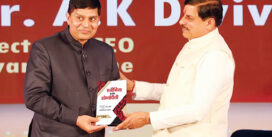- इंदौर एनिमल लिबरेशन की पहल: जानवरों के अधिकारों का हो समर्थन
- सपनों को साकार करने का मंच बन रहा है ‘प्लास्ट पैक 2025’
- शुरू हुआ मध्यभारत का सबसे बड़ा एक्जीबिशन “प्लास्टपैक 2025”, मुख्यमंत्री मोहन यादव ने किया उद्घाटन
- आईडी फ्रेश फूड इंदौर में लेकर आया है ऑथेंटिक साउथ इंडियन इडली डोसा बैटर
- शाओमी इंडिया ने रेडमी 14C 5G को बाज़ार में उतारा और रेडमी नोट 14 5G सीरीज़ के लिए 1000 करोड़ रुपए की शानदार उपलब्धि हासिल की
SOS Children’s Villages of India Obtains Housing Plots for 41 Yenadi Tribal Families in Andhra Pradesh

Livelihood support for women has been strengthening families for upholding parental care for their children.
Hyderabad. SOS Children’s Villages of India, a self-implementing premier child care NGO providing alternative care solutions for children without parental care or those at risk of losing one, helped all 41 Yenadi families of Chindepalli Tribal Colony in Tirupati, Chittoor District of Andhra Pradesh get permanent housing plots from the State Government of Andhra Pradesh, under the latter’s YSR Jagananna Illa Pattalu Scheme.
The land owners are expected to begin the construction of their own concrete homes this year, as they are now eligible for housing loans from the government.
The flagship Family Strengthening Programme, the community outreach model of SOS Children’s Villages of India, brought children of 23 eligible families, out of 41 families, under its direct care in 2016.
Through its various capacity building and welfare measures, including livelihood training for mothers as primary caregivers of children, healthcare camps for awareness, and remedial education over the last four years, the NGO has transformed the Yenadi tribal community into a self-reliant one, securing parental care for their children.
The household income has increased sustainably, the community has broken itself free from the clutches of usurious money lenders, and the school dropout rate has been brought down from 90% to 0%. There has been no child marriage, which used to be very common, since last two years.
Commenting about the Yenadi community’s transformation, Mr. Sumanta Kar, Senior Deputy National Director, SOS Children’s Villages of India, said that the impoverished Yenadi tribes were living in vulnerable conditions at Chindepalli Tribal Colony, before we commenced our Family Strengthening Programme.
The primary class children were quite irregular, and almost 90% of them dropped out from school after class five. These Out-of-School Children were sent to work in agricultural fields. Child marriages were widely reported from the community.
They were subsisting with meagre, irregular income from agricultural labour. They were exploited by usurious money lenders. Fire accidents, due to electric short circuits, were frequent in the habitat, as the houses, in the absence of legal electricity connection, drew power by illegally tapping the overhead electricity lines.
We started off our developmental work in 2016. We first offered financial support to families to rebuild their houses, damaged by fire accidents. In 2017, with the support of the Tribal Welfare Department of the state, we arranged for caste certificates and temporary land documents for them. In 2018, using these documents, we helped obtain ration cards for all the families, and power connection for all houses.
And last year, when the state government announced housing plots for landless Below Poverty Line (BPL) families, we supported community members to apply for the scheme, and facilitated housing plots for each of 41 landless families under the government scheme.
Our community intervention project over the last four years have made tangible social and economic changes in Chindepalli. The alternative income generation interventions by way of animal husbandry, skill based jobs, and retailing, for safeguarding and upholding parental care for children, has directly benefitted 23 families and several other initiatives have benefitted all the 41 families of the Yenadi tribal community.
We facilitated formation of Self Help Groups for ensuring that the families have savings and credit facilities in a sustainable manner.
High focus is being given to school enrollment of children. Thanks to various capacity building and awareness activities, the entire community is now aware of child rights. Today 100% of children are enrolled in schools and there are zero dropouts. We arranged remedial tuition to prevent school dropouts.
We are also running an innovative library model – “Books in a Box”. Under this programme, groups of children are given a box full of books to read. Once every three months, the children’s groups exchange their books’ boxes with other groups – this way, all of them get to read new books throughout the year. Further, in the last two years, not even a single child marriage has been reported from the community.
Continuous monitoring and awareness brought a remarkable improvement in health and hygiene practices in the community. Twice a year medical camps are organised in the community and BMI of the children are recorded monthly. The malnourished children are supported with nutrition supplements and medication.
SOS Children’s Villages of India is continuing to work with the Yenadi community. It is keen to reach out to other such communities living in vulnerable conditions across the country.” SOS-India supports 624 children under Family Strengthening Programme from 353 families in Tirupthi, overall.


